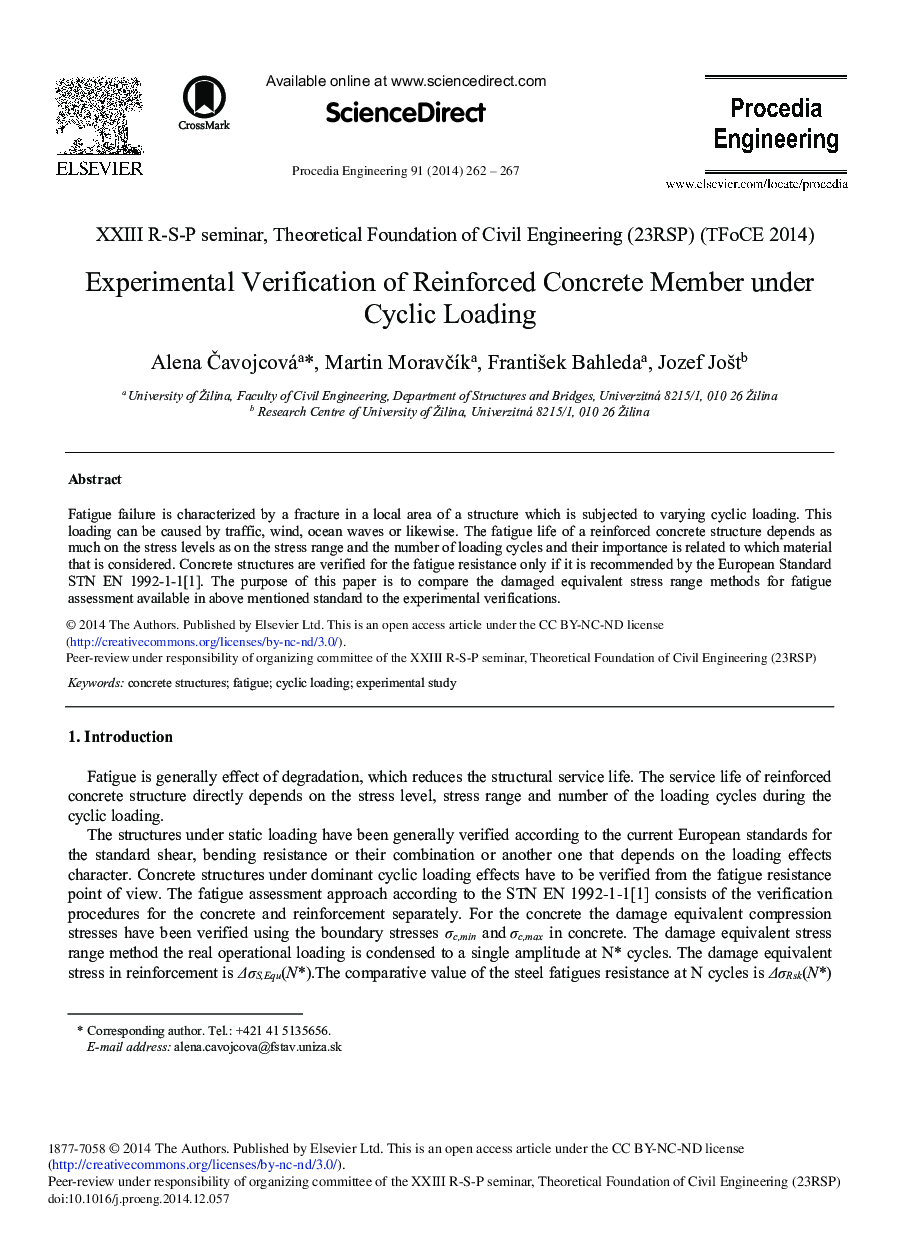| Article ID | Journal | Published Year | Pages | File Type |
|---|---|---|---|---|
| 857533 | Procedia Engineering | 2014 | 6 Pages |
Abstract
Fatigue failure is characterized by a fracture in a local area of a structure which is subjected to varying cyclic loading. This loading can be caused by traffic, wind, ocean waves or likewise. The fatigue life of a reinforced concrete structure depends as much on the stress levels as on the stress range and the number of loading cycles and their importance is related to which material that is considered. Concrete structures are verified for the fatigue resistance only if it is recommended by the European Standard STN EN 1992-1-1[1]. The purpose of this paper is to compare the damaged equivalent stress range methods for fatigue assessment available in above mentioned standard to the experimental verifications.
Related Topics
Physical Sciences and Engineering
Engineering
Engineering (General)
